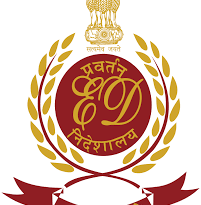Supreme Court Asks MP Judge to Move to HC; refuses to entertain his plea against probe report in sexual harassment allegations
By: S.A. Anjum. Sadiq.
A plea was submitted in Supreme Court Challenging the report submitted by internal committee inquiring into sexual harassment allegations against a Judicial officer in the State of Madhya Pradesh.
A bench of Justices Indira Banarjee & Surya Kant dismissed the plea on Thursday by refusing to entertain it.
The petition was filed through Advocate Sachin Sharma and settled by Senior Advocate R Balasubramanian.
The plea was submitted to challenge the report against a Judicial Officer holding the post of Principal District Judge, and 7th Senior Most in the list of District Judges who are in Super Time Scale (STS) Cadre of the Higher Judicial Services (HJS) of the State, against arbitrary and illegal Final Report submitted by the Respondent No 2 i.e.
The Gender Sensitization and Internal Complaint Committee [GSICC for short] and consequential issue of show cause notice by the Respondent No 1 in proceeding towards conduct of a denovo disciplinary inquiry against the petitioner regarding allegation of sexual harassment at work place.
It is pertinent to mention that petitioner has an unblemished career spanning over 32 years with sterling record of service.
The petitioner is due to superannuate at the end of the year, 2020 and he is at the fag end of his service.
Further, the entire action is visited with arbitrariness, malafide and in complete violation of the principles of natural justice by holding enquiry and or recording statements behind the back of the petitioner at different stages without participation of the petitioner.
The petitioner further claims that “All these actions have been done at a time when the petitioner is in the zone of consideration for being considered for elevation. The action has apparently been kept pending for last more than two years with a view to harm the career prospects of the petitioner at a time when he is in the zone of consideration.”
It is the submission of the petitioner that This is a classic case where the facts are speaking for themselves as to how the Gender Sensitisation Internal Complaint Committee (“GSICC” for short), completely negated the provisions of Section 10 of the Sexual Harassment of Women at Workplace (Prevention, Prohibition and Redressal) Act, 2013, (hereinafter referred to as “the Act” for short) by rejecting the Application for conciliation submitted by the complainant i.e. Complainant.
The GSICC acted as if it is a Court of Law by rejecting the said application whereas, it is mandated in law that it shall record a settlement once a conciliation application is submitted by the complainant. The GSICC/ICC (Internal Complaint Committee) being creation of a statute is bound by the provisions of the Act and it cannot traverse beyond as if it is a Court of law.
It is well settled in law that even a Tribunal created by law is not a court but it is bound by the law by which created it. [Re Chandrakala Vs Union of India &Ors 1997(3) SCC 261].
The Section 10 & 11 of Sexual Harassment of Women (Prevention, Prohibition & Redressal Act),2013 (The Act). States that.
Sections 10 and 11 of the Act prescribes two distinct procedures for resolution of a complaint of any alleged sexual harassment, which are as follows:
“10. Conciliation.—(1) The Internal Committee or, as the case may be, the Local Committee, may, before initiating an inquiry under section 11 and at the request of the aggrieved woman take steps to settle the matter between her and the respondent through conciliation:
Provided that no monetary settlement shall be made as a basis of conciliation.
(2) Where settlement has been arrived at under sub-section (1), the Internal Committee or the Local Committee, as the case may be, shall record the settlement so arrived and forward the same to the employer or the District Officer to take action as specified in the recommendation.
(3) The Internal Committee or the Local Committee, as the case may be, shall provide the copies of the settlement as recorded under sub-section (2) to the aggrieved woman and the respondent.(4) Where a settlement is arrived at under sub-section (1), no further inquiry shall be conducted by the Internal Committee or the Local Committee, as the case may be.”
11. Inquiry into complaint.— (1) Subject to the provisions of section 10, the Internal Committee or the Local Committee, as the case may be, shall, where the respondent is an employee, proceed to make inquiry into the complaint in accordance with the provisions of the service rules applicable to the respondent and where no such rules exist, in such manner as may be prescribed or in case of a domestic worker, the Local Committee shall, if prima facie case exist, forward the complaint to the police, within a period of seven days for registering the case under section 509 of the Indian Penal Code (45 of 1860), and any other relevant provisions of the said Code where applicable:
Provided that where the aggrieved woman informs the Internal Committee or the Local Committee, as the case may be, that any term or condition of the settlement arrived at under sub-section (2) of section 10 has not been complied with by the respondent, the Internal Committee or the Local Committee shall proceed to make an inquiry into the complaint or, as the case may be, forward the complaint to the police:
Provided further that where both the parties are employees, the parties shall, during the course of inquiry, be given an opportunity of being heard and a copy of the findings shall be made available to both the parties enabling them to make representation against the findings before the Committee.
(2) Notwithstanding anything contained in section 509 of the Indian Penal Code (45 of 1860), the court may, when the respondent is convicted of the offence, order payment of such sums as it may consider appropriate, to the aggrieved woman by the respondent, having regard to the provisions of section 15.
(3) For the purpose of making an inquiry under sub-section (1), the Internal Committee or the Local Committee, as the case may be, shall have the same powers as are vested in a civil court the Code of Civil Procedure, 1908 (5 of 1908) when trying a suit in respect of the following matters, namely.
(a) summoning and enforcing the attendance of any person and examining him on oath;
(b) requiring the discovery and production of documents; and
(c) any other matter which may be prescribed.
(4) The inquiry under sub-section (1) shall be completed within a period of ninety days.” [ Emphasis added].
The dismissal of Conciliation application by the GSICC and consequently submission of final report, by the GSICC itself both are simply unsustainable in law.
The ISC of the GSICC instead of giving its finding on conciliation referred the matter to the GSICC. The GSICC began the inquiry under section 11 of the Act, which in law it is forbidden to do so, by keeping the conciliation application pending for a long period of five months. The GSICC was in fact mandated in law to record the conciliation settlement under section 10 of the Act.
This manifest violation of mandatory legal provisions merit interference by this Hon’ble court and recommendation of initiation of fresh disciplinary inquiry proceeding in the final report prepared by the GSICC has to the set aside being unsustainable in law.
It is further submitted that the services of the petitioner are also governed by ‘Madhya Pradesh Higher Judicial Service (Recruitment and Conditions of Service) Rules, 2017, Madhya Pradesh Civil Services (Conduct) Rules, 1965 and Madhya Pradesh Civil Services (Classification, Control and Appeal) Rules, 1966 [for short the MPCS (CCA) Rules].
A proviso inserted after sub rule 2 in Rule 14 of the MPCS (CCA) Rules vide Gazettee of M.P., Bhopal dated 17.3.2005, reads as under-
“Provided that where there is a complaint of sexual harassment within the meaning of sub-rule (3) of Rule 22 of the Madhya Pradesh Civil Services (Conduct) Rules, 1965, the complaints committee established in each Department or Office for inquiring into such complaints, shall be deemed to be the inquiring authority appointed by the disciplinary authority for the purpose of these rules and the complaints committee shall hold if separate procedure has not been prescribed for the complaints committee for holding the inquiry into the complaints of sexual harassment, the inquiry as far as practicable in accordance with the procedure laid down in these rules”.
There are detailed provisions in the Act, the rules and the regulations, 2015 for manner of inquiry into the complaint, preparation of the inquiry report in accordance with the provisions of the Act. Moreover, in view of the above-mentioned proviso inserted in MPCS (CCA) Rules, the GSICC itself is an inquiring authority appointed by the disciplinary authority for the purpose of inquiry into a complaint of sexual harassment.
The GSICC had inquired the complaint in detail. During the inquiry nothing came on record against the petitioner.
Even the GSICC concluded in its Final Report that charges of sexual harassment have not found proved against the petitioner.
Thus, the action of the GSICC making its recommendation for initiation of Disciplinary Inquiry Proceedings, against the petitioner is self-contradictory and it is well beyond the powers conferred on it under the act, the rules, the Regulations 2015 and the service law applicable to the petitioner.
Section 18 of the Act, and Rule 11 of the Rules provides for an appeal. Any person aggrieved from the recommendations made under section 13, 14 and 17 or non-implementation of such recommendations may prefer an appeal to the appellate authority.
The recommendation of the GSICC for initiation of Disciplinary Inquiry Proceedings, against the petitioner does not come under the purview of the above-mentioned provisions of law.
Thus, the Final Report dated 30.04.2019 of the GSICC is not appealable. Similarly, in the Regulations 2015, there is no provision for appeal. However, Regulation No.12 of the said Regulations, provides for representation.
The petitioner had already submitted reply/representation dated 17.12.2019 before Hon’ble the Administrative Committee (HJS) of Hon’ble the High Court.
In the present case, it is submitted that principles of natural justice have been violated with impunity throughout both by the GSICC and also prior to that in the conduct of the inquiries.
That the action is also unreasonable and arbitrary for the simple reason that the foundation of the action in holding a preliminary enquiry against the petitioner, as also the subsequent action of the GSICC in recording partial statement of the complainant both were done behind his back and in complete violation of “audi alteram partem” rule i.e. that no person can be condemned unheard or in other words that ‘Justice should not only been done but seen to be done’.
It would not be out of place to mention here that principles of natural justice have been given greater legitimacy by section 11 of the Act, 2013 that provides for the opportunity to be heard and to make representation against findings to both parties, as well as by sub rule 4 of Rule 7 of the Rules framed there under expressly lays down that an inquiry must be conducted in accordance with the principles of natural justice.
The foundational judgment of this Hon’ble court in the case of E. P. Royappa vs State of Tamil Nadu &Anr cited reported in 1974 SCR (2) 348 emphasize the indispensability of fairness and absence of arbitrariness in conduct of enquiry. This principle has been reiterated in series of decisions subsequently and has evolved into well-established rule of law. Needless to submit that natural justice and fair play in decision making are deeply rooted in rule of law and have been held to be fundamental, the purpose being to prevent miscarriage of justice. [Re Maneka Gandhi Vs Union of India and Ors (1978 (2) SCR 621].




